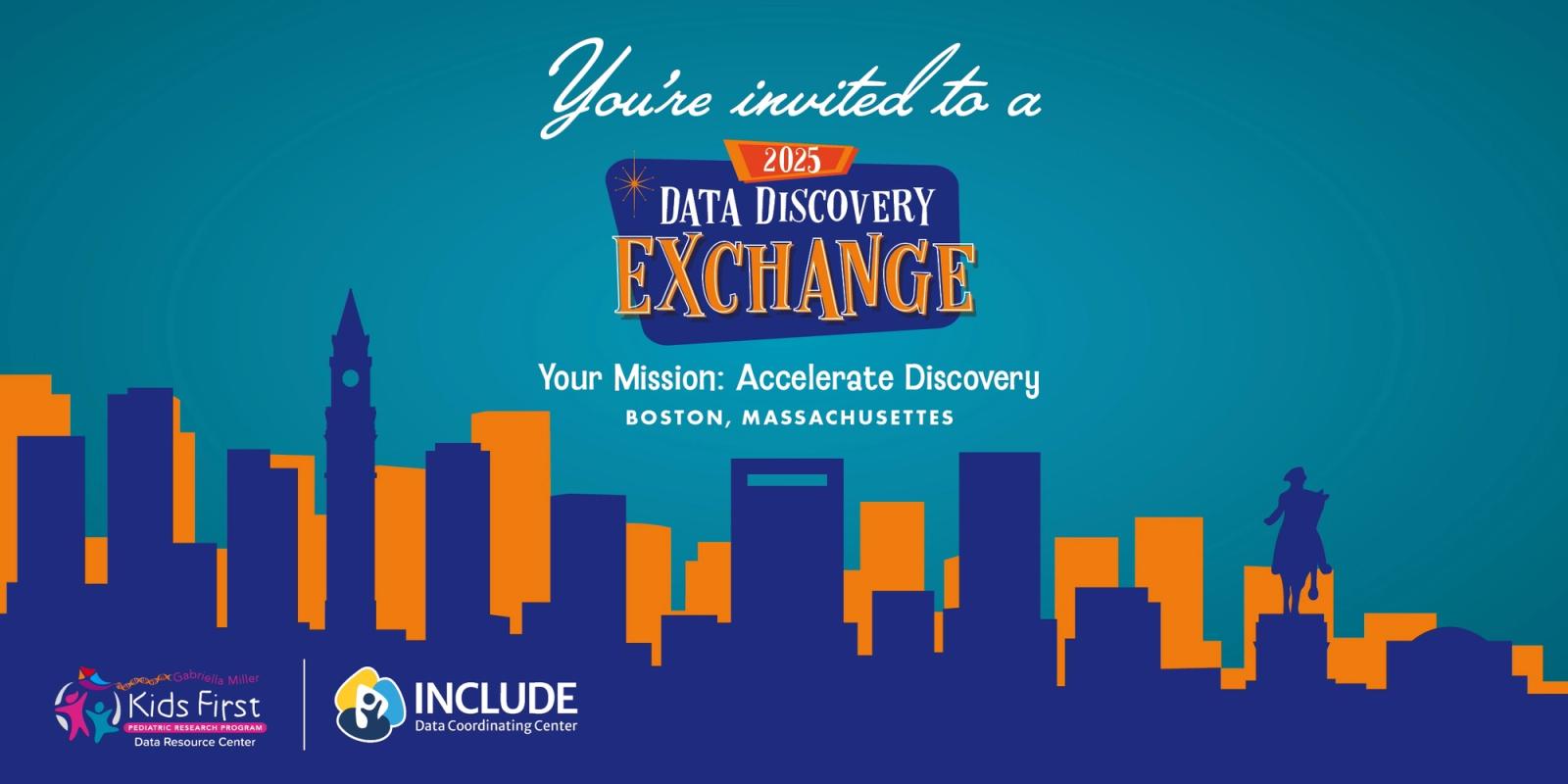We’re excited to connect with you at the 2025 American Society of Human Genetics (ASHG) Annual Meeting, where we’ll share the latest breakthroughs in Down syndrome research, insights and collaborations. We’re also proud to host the Data Discovery Exchange, a scientific poster session and reception co-hosted by the INCLUDE Data Coordinating Center (DCC) and the Kids First Data Resource Center (DRC). Here's a look at what's happening:
Join us at ASHG 2025
The INCLUDE Data Coordinating Center (DCC) and the Gabriella Miller Kids First Data Resource Center (Kids First DRC) invite you to connect, explore and collaborate at the 2025 American Society of Human Genetics (ASHG) Annual Meeting in Boston, Massachusetts.
Visit Our Booths in the NIH Pavilion
Exhibit Hall A–B | October 15–17, 9:30 a.m. �– 4:30 p.m. ET
Discover how our cloud-based platforms are accelerating genomic and clinical research.
- INCLUDE DCC – Booth #1446: Navigate the INCLUDE Data Hub, explore NIH funding and training opportunities and learn how we can help advance your Down syndrome research.
- Kids First DRC – Booth #1448: Demo new ecosystem features, including somatic data and the variant workbench and meet “Professor Poppy,” our in-the-know spokes-GOAT.
Don’t Miss Our Special Events
Data Discovery Exchange – Scientific Poster Session & Reception
Co-hosted by INCLUDE DCC and Kids First DRC
The Westin Boston Seaport District, Marina Ballroom 2 | Thursday, October 16, 2025 | 7:00–9:00 p.m. ET
Join us for an evening of collaboration, conversation and discovery with fellow researchers using our platforms to unlock new insights in genomics.
- This event is free and open to all; no ASHG registration is required.
- Showcase Your Research: Have you made discoveries using INCLUDE Data Hub or Kids First data? Submit your poster abstract by September 16. Space is limited!
INCLUDE Symposium
Friday, October 17 | 8:30–10:00 a.m. ET
Breakthroughs in Down Syndrome Research in the Age of the NIH INCLUDE Project
- Hear the latest NIH INCLUDE Project findings on differential co-occurring conditions in Down syndrome and their implications for translational research and therapeutic development.
